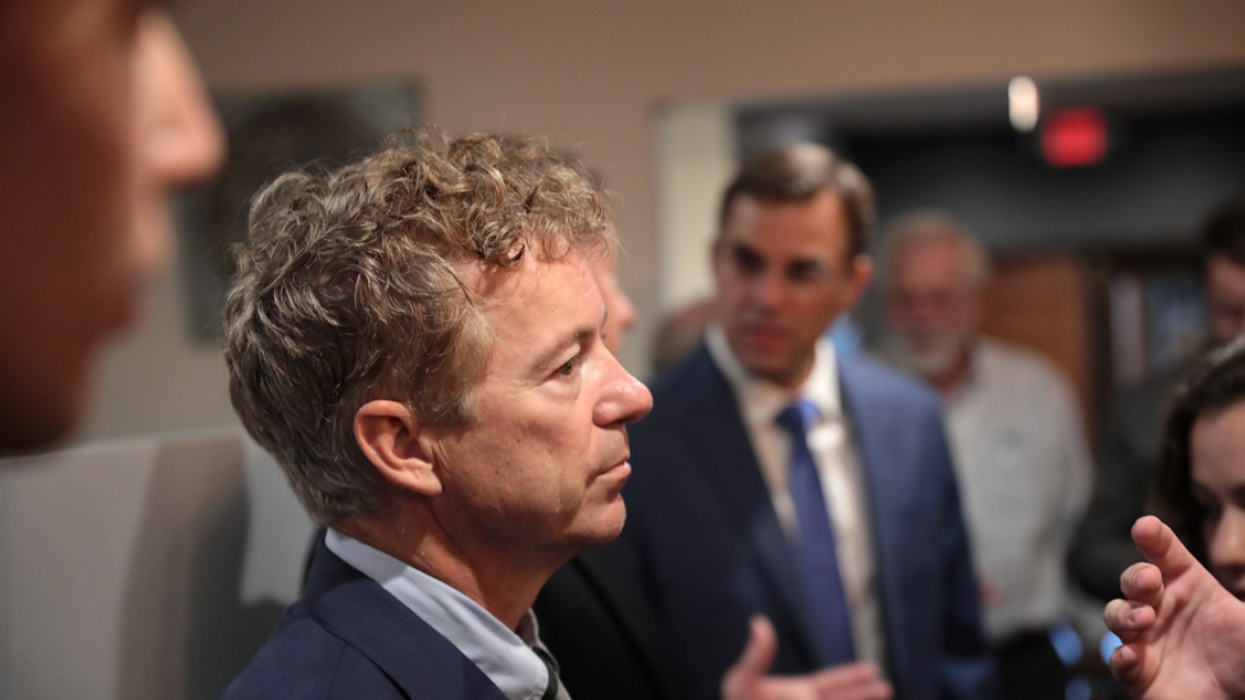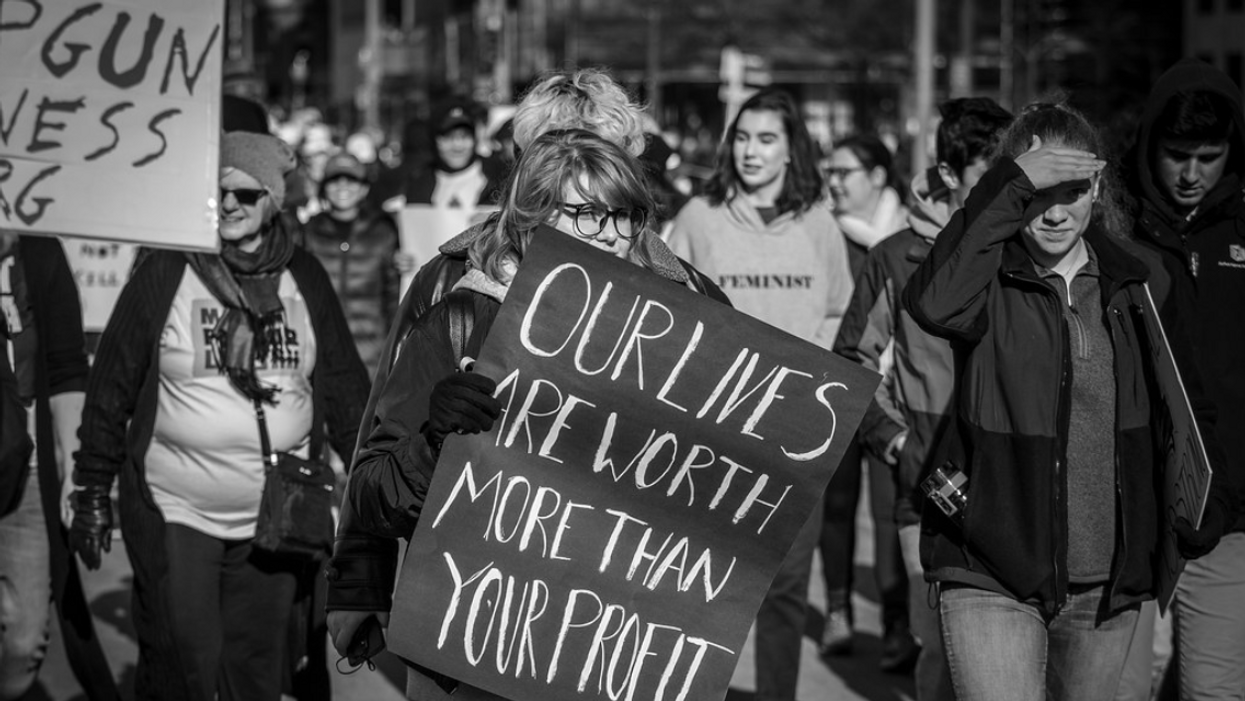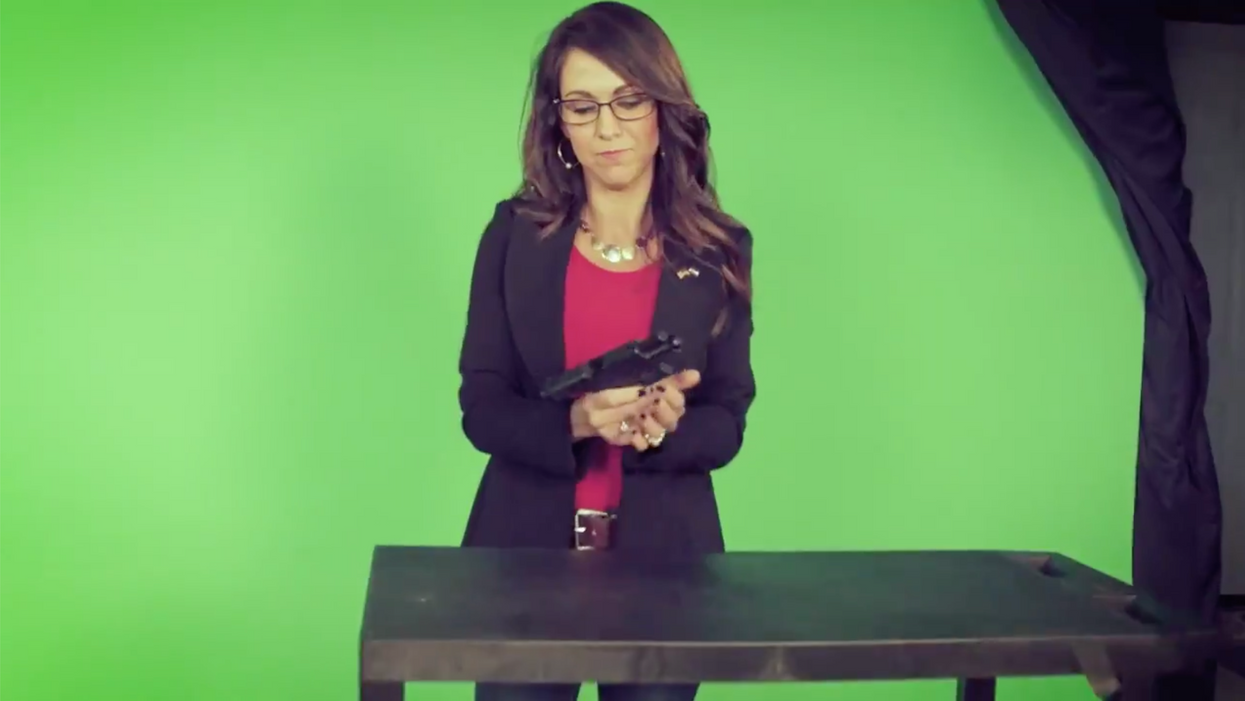Polls: Big Majority Wants Gun Safety Measures Opposed By GOP
Reprinted with permission from American Independent
Congressional Republicans are slamming President Joe Biden's recent executive actions on gun control in the wake of two mass shootings as unnecessary and counterproductive, and claim further restrictions on ownership are not the answer to gun violence.
A new poll by Morning Consult/Politico shows that most Americans feel differently.
"Limiting the ability for any law-abiding American to buy a gun will not make America safer," tweeted Rep. Dan Newhouse (R-WA) this week.
Rep. Lauren Boebert (R-CO) wrote in a tweet Sunday, "It's clear Democrat guncontrol laws don't work. Just look at the cities they control. If violent crime were down in places like Chicago, Portland and D.C., we might entertain their logic. Their failed policies don't prevent violence or protect our communities."
Studies have in fact demonstrated repeatedly that states and countries that enact stricter gun control experience fewer deaths by gun violence.
Senate Republicans like Sen. John Hoeven (R-WI), Sen. John Boozman (R-AR), Sen. Kevin Cramer (R-ND), and Sen. Steve Daines (R-MT) also criticized the Biden administration's efforts at curbing gun violence through stronger legislation, claiming such efforts are misguided and won't work.
A new Morning Consult/Politico poll released Wednesday morning indicates that most Americans disagree.
Polling indicated that 64 percent of registered American voters are in favor of stricter gun control legislation, while only 28 percent actively oppose such legislation.
Eighty-three percent of those polled also said they supported expanded background checks that apply to every single gun sale. Similarly, more than 80 percent supported prohibiting the sale of guns to those medical providers have declared too medically or psychologically unstable for ownership.
Some 73 percent of respondents supported a three-day waiting period for buying a gun, while 70 percent were in favor of implementing a national database to track gun sales. And 76 percent expressed approval for prohibiting individuals on federal watch lists from gun ownership.
Biden recently signed several executive orders directing further gun control measures after a gunman opened fire at a grocery store in Boulder, Colorado, on March 22, leaving 10 people dead. That attack took place just days after a white gunman killed eight individuals, including six Asian American women, at several Atlanta-area spas on March 16.
Bide placed specific focus on "ghost guns," or guns assembled from kits without serial numbers, and so-called red flag laws, which allow courts to ban firearms for individuals who have demonstrated they may be a danger to themselves or other people.
Biden also urged Congress just after the Atlanta-area shootings to implement an assault weapons ban.
"Gun violence in this country is an epidemic and it is an international embarrassment," Biden said, speaking at the White House on April 8.
Republicans were outraged at the move, with Hoeven writing in a statement responding to the President, "Infringing on the constitutional rights of law-abiding citizens will not prevent violence."
Several gun control bills passed the House in March but are likely to meet challenges in the Senate, where they would need the support of at least 10 Senate Republicans in order to pass. These include the Bipartisan Background Checks Act of 2021, which would require that, in the event of a gun transfer between two unlicensed individuals, a third-party seller, dealer, importer, or manufacturer to temporarily withhold the gun until a background check on the buyer is complete.
H.R. 1446, the Enhanced Background Checks Act of 2021, also passed the House in March. This legislation would close the loophole that allowed white supremacist Dylann Roof to unlawfully procure a gun and kill nine Black Americans at the Emanuel African Methodist Episcopal Church in Charleston, South Carolina. The current loophole states that if the FBI does not complete a background check within three days, the gun transfer can still go forward — which it did in Roof's case, though he would have failed a background check.
Republicans are also objecting to David Chipman, Biden's nominee to head the Bureau of Alcohol, Tobacco, Firearms and Explosives, who has a history of supporting some gun control measures.
"David Chipman is a gun grabber who believes in wild conspiracies. He should not be confirmed to run the ATF," tweeted Sen. Tom Cotton (R-AR).
A separate USA Today/Ipsos poll found that three-quarters of Americans support tougher gun control legislation, though, among Republicans, that figure drops to just 12 percent — a decline of 20 percentage points from Republicans' stance on the issue in similar surveys back in 2019.
Ipsos President Cliff Young told USA Today, "This is much more about a shift in the Republican base, and their leadership, than about the issue itself."
"In these highly tribalized times, cues from leadership become especially important in how the public forms their stance around issues," he added. "The partisan cuing around gun reforms has changed among Republican leadership, and the Republican base has followed suit."
Published with permission of The American Independent Foundatio












